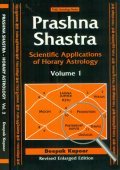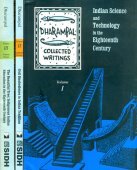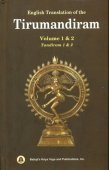Grammar: 2 definitions
Introduction:
Grammar means something in Hinduism, Sanskrit. If you want to know the exact meaning, history, etymology or English translation of this term then check out the descriptions on this page. Add your comment or reference to a book if you want to contribute to this summary article.
In Hinduism
Purana and Itihasa (epic history)
Source: Shodhganga: Elements of Art and Architecture in the Trtiyakhanda of the VisnudharmottarapuranaGrammar refers to one of the topics dealt with in the Puranic literature: a category of ancient Sanskrit texts which gives a huge contribution in the development of Indian literature.—The Puranas comprises a wide range of subject matters such as Astrology, Astronomy, Medicine, Cosmology, Theology, Philosophy, Literature, Grammar, Art, Architecture, Iconography, etc. All these subject matters are generally depicted through stories and narratives in lucid style in the Puranas. The simplicity of the stories and legends of Puranas always helps the reader get the ideas of different aspects of literature very easily.

The Purana (पुराण, purāṇas) refers to Sanskrit literature preserving ancient India’s vast cultural history, including historical legends, religious ceremonies, various arts and sciences. The eighteen mahapuranas total over 400,000 shlokas (metrical couplets) and date to at least several centuries BCE.
Yoga (school of philosophy)
Source: ORA: Amanaska (king of all yogas): A Critical Edition and Annotated Translation by Jason BirchGrammar is denoted by the Sanskrit term Vyākaraṇa, according to the Amanaska Yoga treatise dealing with meditation, absorption, yogic powers and liberation.—Accordingly, as Īśvara says to Vāmadeva: “[...] Not by studying the doctrines of scriptural exegesis, logic, planets and mathematics, nor by the Vedas, Upaniṣads, Dharmaśāstras [and the like]; not even by lexicons nor metre, grammar (vyākaraṇa), poetry nor rhetoric; the sage's attainment of the highest reality is gained only from the oral teachings of his own Guru. [...]”.

Yoga is originally considered a branch of Hindu philosophy (astika), but both ancient and modern Yoga combine the physical, mental and spiritual. Yoga teaches various physical techniques also known as āsanas (postures), used for various purposes (eg., meditation, contemplation, relaxation).
See also (Relevant definitions)
Full-text (+4231): Vyakarana, Shabdashasana, Katantra, Shabdashastra, Vedanga, Adesa, Balamanorama, Vaiyakarana, Shastracakshus, Visarjaniya, Anubhutisvarupacarya, Tolkapyam, Varnatantramala, Sakarmaka, Rijuvyakarana, Vyakaranasamgraha, Shabdavali, Anunasika, Shabdamanjari, Vyakaranakara.
Relevant text
Search found 181 books and stories containing Grammar; (plurals include: Grammars). You can also click to the full overview containing English textual excerpts. Below are direct links for the most relevant articles:
Philosophy of language in the Five Nikayas (by K.T.S. Sarao)
4.3. Faculty of Language < [Chapter 2 - Concept of Philosophy of Language]
3. On Language (4): Competence and Performance < [Chapter 2 - Concept of Philosophy of Language]
8. Modularity in Cognition < [Chapter 5 - Language and Thought]
Vakyapadiya of Bhartrihari (by K. A. Subramania Iyer)
Verse 1.143 < [Book 1 - Brahma-kāṇḍa (or Āgama-samuccaya)]
Verse 1.11 < [Book 1 - Brahma-kāṇḍa (or Āgama-samuccaya)]
Verse 1.58 < [Book 1 - Brahma-kāṇḍa (or Āgama-samuccaya)]
Trishashti Shalaka Purusha Caritra (by Helen M. Johnson)
Introduction to volume 6 < [Introductions]
Part 8: Sanatkumāra’s childhood < [Chapter VII - Sanatkumāracakricaritra]
Part 3: Mahāvīra’s childhood < [Chapter II - Mahāvira’s birth and mendicancy]
Tibet (Myth, Religion and History) (by Tsewang Gyalpo Arya)
9. Zhangzhung sMar yig as the Source < [Chapter 5 - Tibetan Language and Writing System]
8. Tibetan Grammar; Sum cu pa and rTags 'jug < [Chapter 5 - Tibetan Language and Writing System]
6. The Teachers -Bram ze li byin and lHa rig pa'i seng ge < [Chapter 5 - Tibetan Language and Writing System]
Is Sanskrit an Original Language? < [April – June, 1998]
Love in Tamil Poetry < [January-February, 1929]
Triple Stream < [October – December, 2003]
Kathasaritsagara (the Ocean of Story) (by Somadeva)
Foreword to volume 4 < [Forewords]
Chapter IV < [Book I - Kathāpīṭha]
Chapter VII < [Book I - Kathāpīṭha]
Related products
(+1 more products available)





